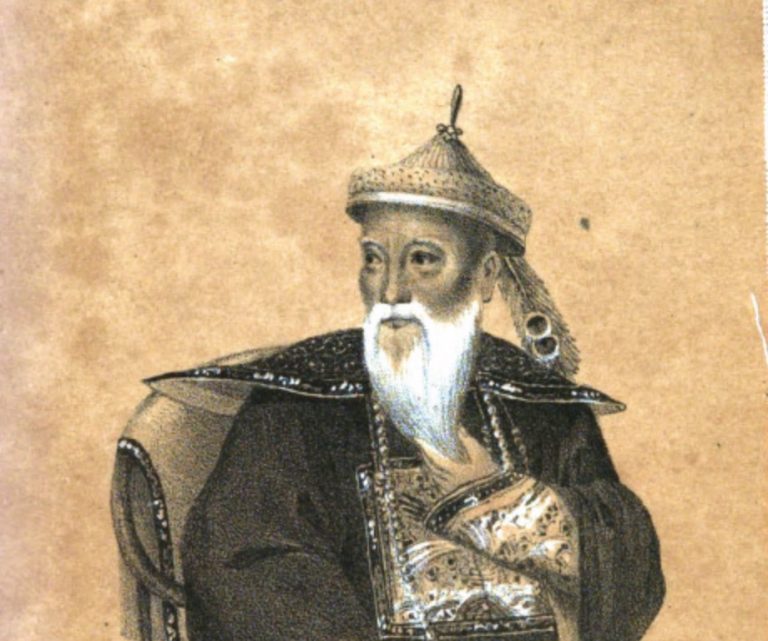Lin Zexu (林則徐, 1785-1850) was an honest official in the late Qing Dynasty known for his strict crackdown against the opium trade in southern China. In 1839, he made a tour of Macao and, seeing the ills plaguing society, penned 10 maxims based on his 54 years of experience to warn against the futility of performing superficial good deeds while neglecting inner morality.
Because Lin’s sayings all end in the Chinese word 無益, or literally “no benefit,” they became known as the “10 no goods” (十無益).
Below are the second five of Lin’s 10 lessons.
6. If you are prideful and arrogant, broad study does no good
In the traditional Chinese worldview, the main purpose of the study was to gain wisdom, not to collect academic titles as seems to be the case in modern times. Many have noted the rise of the “intellectual-yet-idiot” who has little practical knowledge but assumes an air of superiority over others simply on the basis of his scholarly credentials and ability to parrot whatever viewpoint happens to be in vogue.
Success
You are now signed up for our newsletter
Success
Check your email to complete sign up
Confucius told his students to see anyone they came across in life as a possible teacher. According to Daoist teaching, while a cup may be made of a variety of materials, it is always the emptiness within that makes it useful. Likewise, people should be humble and respectful — no matter how great their academic accomplishments.
7. If the timing is not right, ambitious aims are no good
It is not enough for a person to simply want to do something — no matter how hard he wishes it, his aims will not bear fruit if he pits himself against the world in the process.
There is a Chinese saying: “Planning a deed is the work of man, but the result is a matter of heavenly will.” The Chinese also speak of the need for “heavenly timing, earthly advantage, and human harmony” (天時、地利、人和) before an undertaking can commence.
8. If you have taken wealth that is not yours, offerings to Buddha do no good
It is said that the superior man deals in justice, while the man of low character is attached to profit and advantage. He takes every opportunity to skim profit in his dealings, in effect taking what does not belong to him.
In recent decades, as the Chinese Communist Party (CCP) embarked on its economic reforms, Marxist ideology temporarily took a back seat. Many Party officials, aside from consulting with Daoist masters and fortune-tellers, found a renewed faith in Buddhism. Numerous Buddhist temples were built or renovated, creating the impression that the Chinese were returning to their traditional roots.
But this revival, which took place mainly following the 1980s, took place in the backdrop of the CCP’s continued dictatorship and the growth of truly massive corruption. Chinese society has become extremely transactional, with talk of money even dominating relations between family members.
The modern Buddhist clergy in China is known to largely be a profit-making scheme. Many Party officials who were arrested for corruption have been found to be self-proclaimed believers in Buddha, but because they did not pay attention to basic morality, their “faith” did them no good.
9. Without maintaining your vital energy, taking medicine does no good
The Chinese speak of one’s health as being maintained by yuan qi, which can be translated as “vital energy.” While “vital energy” may be a nebulous concept, the need to take care of your body is very obvious. However, many people don’t do the many little things that can help them stay in shape, such as eating better or exercising regularly.
This is not entirely the fault of people’s laziness. The ancient Chinese warned that medicine is “three-parts healing and seven-parts toxic,” a saying that holds true even today as many drugs have deleterious side effects. But as preventative and other simple fixes for ailments threaten the interests of the pharmaceutical industry, today’s health professionals often afford them less attention than they deserve. Medical costs thus increase as more people become ill from preventable conditions, placing greater burdens on society.
10. If you are driven by fleshly pleasures, performing acts of secret charity does no good
“Do not neglect to do a good deed, small though it may be, and do not ignore a small sin on account of it being minor,” a Chinese saying goes.
Confucius and other Chinese philosophers taught that of the many evils that lurk in human nature, lust was the worst. If left unchecked, it leads people to commit all other manners of sins.
Here, by “secret charity” Lin refers to any virtuous conduct or undertaking. By this last admonishment, the imperial official warns that lofty ideals can be derailed if one’s mind is not right.
A righteous man in a difficult era
Because of the times he lived in, Lin Zexu is remembered as a tragic figure. His diligent efforts to curb the opium trade were ultimately thwarted by the corrupt Qing Dynasty government and the declaration of war on China by Great Britain. The First Opium War (1839–1842), which the Qing military lost badly, affirmed the right of foreign traders to export the drug in China.
The emperor blamed Lin for causing the war, and he was relieved of his post and exiled to the faraway Xinjiang region. He died in 1850, while en route to southern China to help put down the Taiping rebels.
But Lin’s honesty and good character made sure that his reputation was corrected after his death. As the Qing Dynasty collapsed, increasing numbers of Chinese saw him as a patriot doing his best to stand up for morality and righteousness despite extremely unfavorable odds.
Follow us on Twitter or subscribe to our email list














